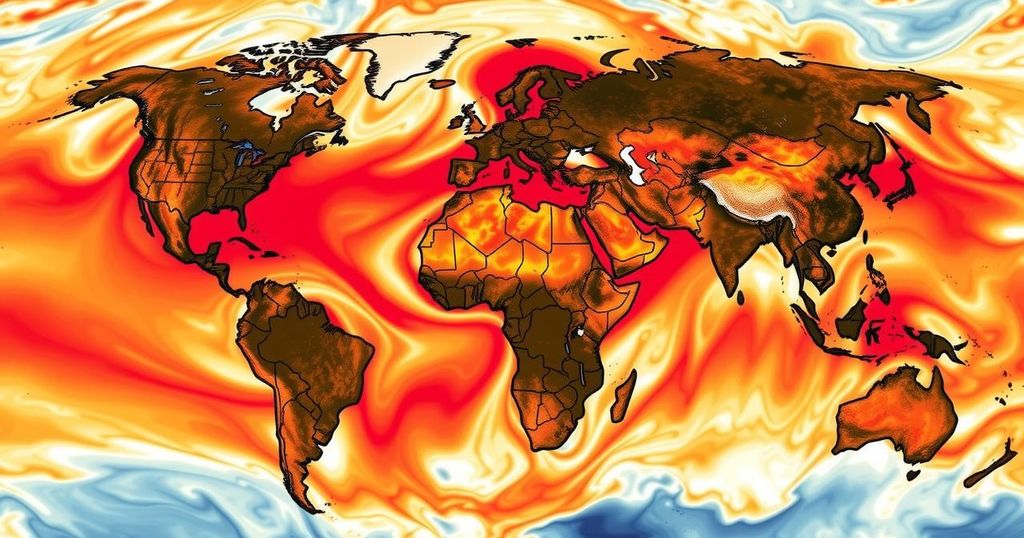Second-Warmest November Signals Likelihood of Hottest Year in 2024

The European climate service Copernicus reported that November 2024 was the second-warmest on record, likely leading 2024 to become the hottest year documented. Global temperatures averaged 14.10 degrees Celsius, indicating a worrying trend driven by human-induced climate change and the absence of cooling effects from La Nina. Experts emphasize the urgent need for ambitious climate action to mitigate further ecological disruptions.
The recent report by the European climate service Copernicus indicates that November 2024 recorded the second-highest temperatures on record, trailing only November 2023. This significant rise in temperature is likely to position 2024 as the hottest year ever recorded. The average global temperature for November was 14.10 degrees Celsius (57.38 degrees Fahrenheit), a notable increase compared to the same period last year. The ongoing impacts of human-induced climate change, along with the absence of a cooling influence from La Nina, are pivotal in this climatic shift, raising concerns about future extreme weather and ecological stability. Jennifer Francis from the Woodwell Climate Research Center emphasized that the trends indicate warming exceeds previous records significantly. Moreover, this year could mark the first time the global temperature surpasses 1.5 degrees Celsius above pre-industrial levels, underscoring the urgent need for ambitious climate action to mitigate further detrimental effects.
Distinctly, the Copernicus report highlighted critical factors contributing to this temperature increase, including elevated ocean temperatures, decreased Antarctic sea ice, and a significant reduction in reflective surfaces. Historical patterns demonstrated that El Nino typically raises atmospheric temperatures, yet in the current scenario, the expected cooling effect was absent, leaving scientists puzzled. This lack of natural temperature regulation has led to unprecedented warming, raising fears about ecological consequences and threats to agriculture, biodiversity, and coastal communities.
The topic of climate change has garnered increased attention in recent years due to alarming global temperature trends recorded over decades. The report from Copernicus highlights how human activities, particularly the burning of fossil fuels, play a significant role in exacerbating climate change. This report connects rising temperatures to broader implications for both human societies and ecosystems, emphasizing the fragile interdependence of environmental health and global wellbeing. The urgency for concerted climate actions is underscored, stressing the need for international cooperation to adhere to the targets set by agreements such as the Paris Agreement.
In conclusion, the report from Copernicus paints a concerning picture of the current state of global climate, evidencing a continuing trend of rising temperatures. The potential for 2024 to become the hottest year on record due to the unprecedented warming trends signifies a critical juncture for climate action. It is imperative to prioritize ambitious efforts to address and mitigate the impacts of climate change to safeguard the environment and human life against future impasse. Immediate action is necessary before we witness irreversible changes in ecosystems and global weather patterns.
Original Source: apnews.com







